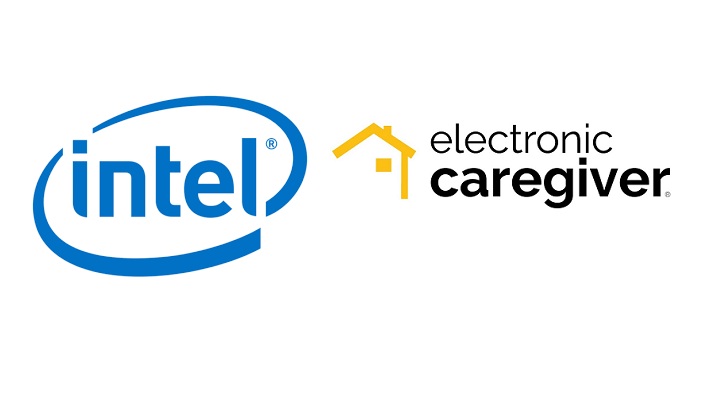With the goal to accelerate progress in confronting global challenges, Intel Corporation has selected Electronic Caregiver®, a worldwide health technology and services company, to receive grant funding for its evidence-based program called “COVID to Home.” The program is designed to reduce constraints on hospital capacity while providing care to recovering COVID-19 patients.
Electronic Caregiver’s COVID to Home program is designed to reduce constraints on hospital capacity while providing care to recovering COVID-19 patients.
The grant awarded by Intel is part of its commitment to expedite access to technology that can combat the current pandemic and enable scientific discovery that better prepares the world for future crises. In April 2020, in response to the unprecedented COVID-19 pandemic, Intel committed $50 million to fund a Pandemic Response Technology Initiative (PRTI) to support and accelerate point-of-patient-care solutions. Since it began, the program has supported hundreds of organizations around the world.
“We chose to support Electronic Caregiver’s project because of its scalable use of remote monitoring that leverages Intel technology to meet the needs of underserved communities in New Mexico,” said Chris Gough, General Manager of Intel Health & Life Sciences.
Electronic Caregiver launched its COVID to Home program in November 2020 in partnership with regional public health stakeholders. The program offers a solution to the recent surge of COVID-19 cases in Doña Ana County, New Mexico, the company’s home base. With the region’s hospitals and ICUs at 100 percent capacity and staff stretched thin, COVID to Home helps alleviate capacity constraints and ensures COVID-19 patients receive proper care and oversight while preventing further spread of the virus.
COVID to Home is jointly funded by Doña Ana County and the city of Las Cruces at no cost to patients. Since the program rolled out at MountainView Regional Medical Center and Memorial Medical Center in Doña Ana County, it has had a positive impact on many lives. Just one month after launching, more than 100 patients had received services and support through the program. Moreover, COVID to Home has increased critical care capacity in the region by 30 percent.
“[COVID to Home] has allowed us to maintain capacity in our hospitals, while providing effective community-based care to people recovering from COVID,” said Jamie Michael, Director of Health and Human Services for Doña Ana County. …It also allows providers to interact with patients safely and allows people to recover in their home.
Under the program, patients are safely discharged to their home or to a designated hotel with an Electronic Caregiver Pro Health smart health hub – a voice-driven, easy-to-use cellular-connected console. Through this Precision Remote Patient Monitoring device, patients receive a daily survey to assess COVID-19 symptoms, including vital signs input from a pulse oximeter, non-contact thermometer, and blood pressure cuff.
A combination of clinicians and clinical volunteers use a HIPAA-compliant secure web portal to assess patient results remotely and provide care as needed. Patients can also use the Pro Health for televisits with a doctor, medication reminders, and 24/7 emergency response. Electronic Caregiver’s solution utilizes Intel technology both in on-site workstations and cloud-based servers from Amazon Web Services.
“The major impact of this program is the number of hospital beds it has freed up for patients that are really sick,” said John Andazola, MD, Program Director of the Southern New Mexico Family Medicine Residency Program at Memorial Medical Center. “It truly represents the best in local collaboration, and we are pleased to play a role.”
Funding from Intel gives Electronic Caregiver the resources to extend support and impact additional lives in the fight against COVID-19. The funds will be used to purchase equipment for the COVID to Home program; create a version of the COVID-19 survey and vitals capture using Electronic Caregiver’s Virtual Caregiver, named Addison; create five portable demo “kits” to showcase the program at events/venues; create a video testimonial of the program; and publish a white paper on program structure, goals, and outcomes.
The option to implement Electronic Caregiver’s COVID to Home program exists throughout the state and the country.
“We’d be thrilled to partner with anybody, anywhere, to be able to replicate this program and be able to drive a similar type of outcome,” said Electronic Caregiver’s Chief Digital Health Integration Officer Mark Francis. “If folks want to come together and deal with this critical public health issue, we’re here with the proven solution that’s driving demonstrated outcomes, that is simple and easy to implement, and can save lives and benefit communities.”
About Electronic Caregiver
Electronic Caregiver® has become a leading and highly recognized brand for virtual care solutions and Precision Remote Patient Monitoring services. The company staff size more than doubled in 2019 and is nearing 150 full-time employees. Electronic Caregiver® has invested more than $55 million and 10 years into research, development, and a staged rollout of virtual care and health management solutions for chronic care patients, child patients, and older adults.
Electronic Caregiver® offers its solutions through a network of leading national home care providers and health institutions and team members. Addison Care™ is the company’s most advanced new technology, offering a Virtual Caregiver™ that deploys technology using IoT, 3D animation, mixed reality, Bluetooth, natural language processing, machine learning, visual sensing, and a suite of integrated electronics. The company manages its business using an advanced proprietary enterprise management platform designed by the company, named Orion.
Electronic Caregiver® and Addison Care™ are now involved in numerous official clinical research initiatives in clinical settings to further validate utilization and efficacy in areas of improved outcomes, improved treatment adherence, and optimized continuum of care.


















